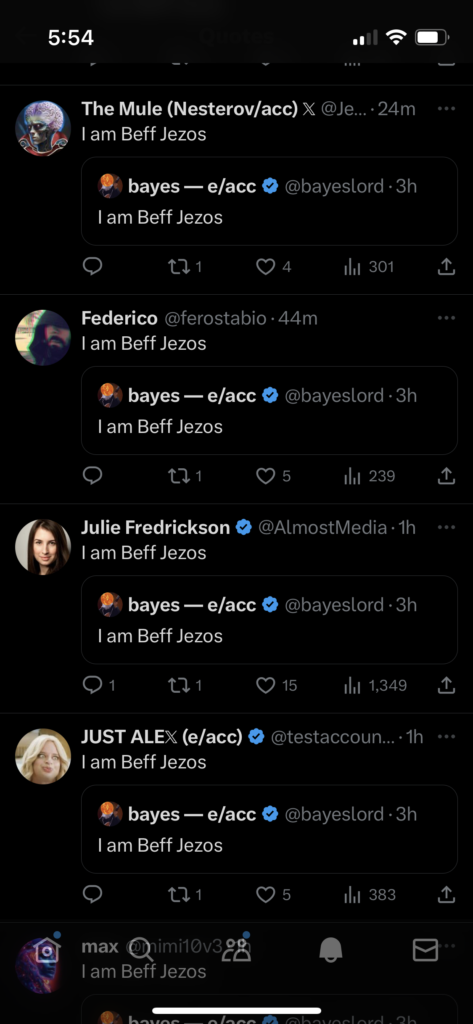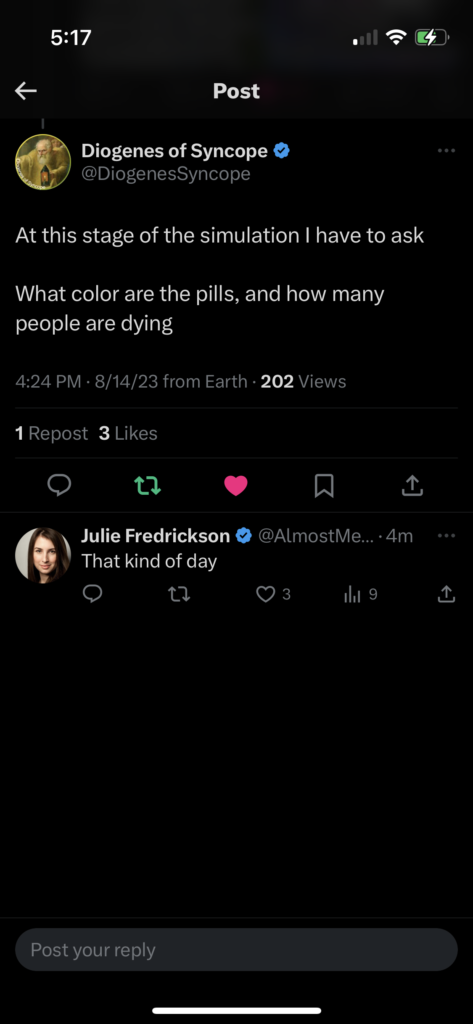In one of my group chats, I hang out with a bunch of rationalist machine learning engineers who are happily climbing the rungs of accelerating life.
I really love the energy of the community as it’s centered tangibly around making things. It’s a little less talk and a lot more action. It’s got a bit of a feeling of Stack Overflow’s early helpfulness but without the Hacker News nerd sniping culture. It’s like the best of a small Reddit thread but for dudes who want to make shit with artificial intelligence.
Now, of course, every community finds itself with disruptive members and turf fights over social mores. Virtual spaces are notorious for clout chasing and personal dramas. Veterans of green text wars are familiar with Geeks, Mops and Sociopaths in Subculture Evolution.
And so it seems fitting that last night, in a much bigger very public egregore that is e/acc’s online community, we got to witness an immune reaction to someone trying to apply non-consensus standards.
I spent an hour watching it play out last night and then went back to reading before bedtime. I’ve got some personal investment in the space and it’s people, so of course that’s what I’m doing on a Friday Night.
But as I got up the next day and saw everyone going back to work, a insightful lowbie named bmorphism (slang for smaller anon accounts on Twitter within subcultures) introduced me to a term I’d never heard before. Autopoietic Ergodicity. Or how do multi-actor dynamic systems self regulate?
He introduced me Autopoietic Ergodicity via a link on PerplexityAI which seemed appropriate. And it got me thinking about how we as individuals interact on a much wider system and how it interacts with us.
The term combines two ideas by positing that complex adaptive systems (like living organisms or ecosystems) exhibit self-regulating behavior that enables them to maintain persistent patterns while also experiencing change from external influences. These systems are capable of minimizing changes caused by random factors, ensuring their essential dynamics remain stable without needing to undergo a complete reset or cycle back to the initial state. It’s like having a dampening mechanism that continually adjusts for fluctuations, allowing system resilience and long-term persistence in an ever-changing environment.
It’s my suspicion that something special is happening across portions of the fracturing social web as most of our platforms go back under more centralized control. The system is fighting back.

The grey tribes that have populated Silicon Valley have an opinion about the future. And it’s a positive one. We’ve got to find ways to be resilient in the face of memetic interference on our systems. There will be high energy distractions. We’ve got to be reminded that it’s a competition for efficient use of energy and we shouldn’t let it be drained. We’ve got to focus on making things that speak for themselves.

